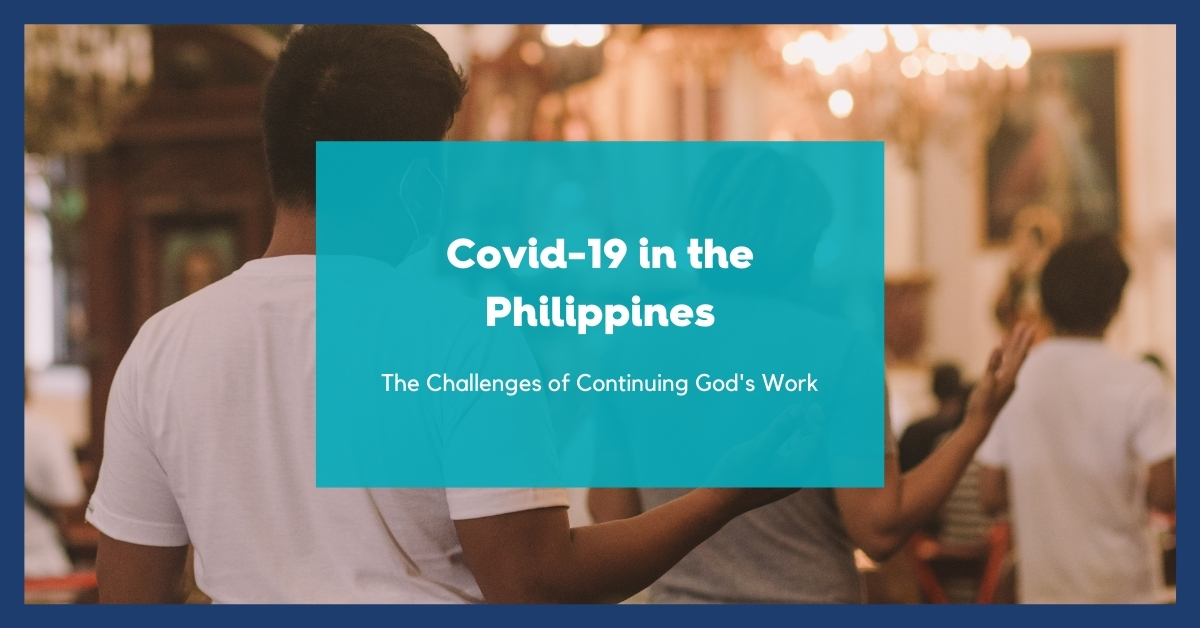
by Nancy Brouillard McKenzie
Since detecting the first reported coronavirus (Covid-19 or pandemic) cases, the people in the Philippines are experiencing widespread fear of contracting Covid-19. Loss of income and hunger are major problems.
The government quells riots protesting no jobs, no income, no food, and other pandemic issues. People also protest the community lockdowns or quarantines (CQs) of variable restrictive levels designed to decrease and isolate the spread of Covid-19.
The “enhanced community quarantine (ECQ) is the most restrictive CQ and essentially is a total lockdown that confines people in their homes. Those measures recently lowered the Covid-19 caseload, but the vaccination rate remains low. There are penalties for violating ECQs.
The newest peril is India's Covid-19 "variant of concern (VOC) at the global level," or the Delta VOC. VOCs are readily transmissible, could cause surges in virulency and caseloads and may decrease the effectiveness of vaccines, public and social health measures, including available diagnostics, and therapeutics. All four known VOCs are in the country.
Columbans and people committed to their discipleship continue to work during the pandemic. (Matthew (Mt) 16:2428). These Columbans include Fr. Andrei Paz, Fr. Kwang-Kyu Peter Dae-chul and Fr. Shay Cullen.
In March 2020, authorities placed the entire island of Luzon under an ECQ while Fr. Andrei Paz was in his family home in Northern Luzon. Initially, he prayed and viewed news about Covid-19. With public transportation suspended, he watched Filipino workers walking from cities to their hometowns where a two-week quarantine awaited them. Fear of contracting Covid-19 and dying from hunger spread. What could a group of Fr. Andrei and friends do?
Praying and relying on Divine Providence, the group decided to assemble bags of groceries with food and household items for the hardest hit: destitute families and displaced jobless workers in the twoweek quarantine. Without funds, they began asking friends who own rice and grocery stores to extend them credit to obtain items for the bags.
While social distancing and adhering to precautions in Fr. Andrei's family home, the group started packing grocery bags. Willing healthcare workers, who daily monitor people in the two-week quarantine, distribute the bags that cost $6 to fill. Family, friends, neighbors, and strangers also donate to the relief effort and repay the grocers.
Fr. Andrei relates the growing relief effort to the miracle of Jesus feeding the crowds with seven loaves and fish that became seven baskets of leftovers. (Mt 15: 32-39) He wishes to continue this effort to let the hardest hit know that others are reaching out to them to spread love, care and hope.
Fr. Kwang-Kyu Peter Dae-chul works at the diocesan parish of Santa Rosa de Lima in Cabangan, Zambales in the Diocese of Iba. One day, he administered the Anointing of the Sick to an elderly man who then passed from an unknown illness.
After witnessing "the grace of God" and comforting the elderly man's family, Fr. Kwang-Kyu prepared to return to his parish. Momentarily, anxiety began as he was not wearing a mask during the anointing of the elderly man's body.
Fr. Kwang-Kyu "grumbled about the situation." Then, among other things, he remembered Peter's absolute refusal to accept the Passion and the strong rebuke of Jesus. (Matthew 16: 13-23.) "You are thinking not as God does, but as human beings do." Fr. Kwang-Kyu stopped thinking as a "human being." Instead, in a deeply personal and profound spiritual moment, he reaffirmed his priestly vows to administer the sacraments "to wherever the people of God needed."
For 2020, Fr. Shay Cullen, the founder and former President of PREDA (People’s Recovery, Empowerment, Development Assistance Foundation) shares "good news" of PREDA's work. PREDA works to protect women and children and human rights. Foremost among its successes is the strict measures that kept PREDA's staff and children free from COVID-19.
Among other good news is the rescue of children from abusive situations (physical, sexual, trafficking, and Covid19 infected detention centers). Children welcomed in a PREDA home instantly receive affirmation and personal care for all their needs. Social and psychological services also provide healing and recovery from abuse.
With help from PREDA, children recovering from abuse obtained 16 convictions against their sex traffickers and rapists. Most of those convicted received life sentences.
In 2020, the pandemic forced courts to close and shift to court hearings online. Fr. Shay notes that it is "a more child-friendly way than appearing in the courtroom in the presence of their abusers." Testifying online shows how healing and empowerment and restores and reshapes their lives.
Nancy Brouillard McKenzie is a volunteer for the Columban Center for Advocacy and Outreach.
Copyright © 2025 Columban Center for Advocacy and Outreach, Washington, D.C.